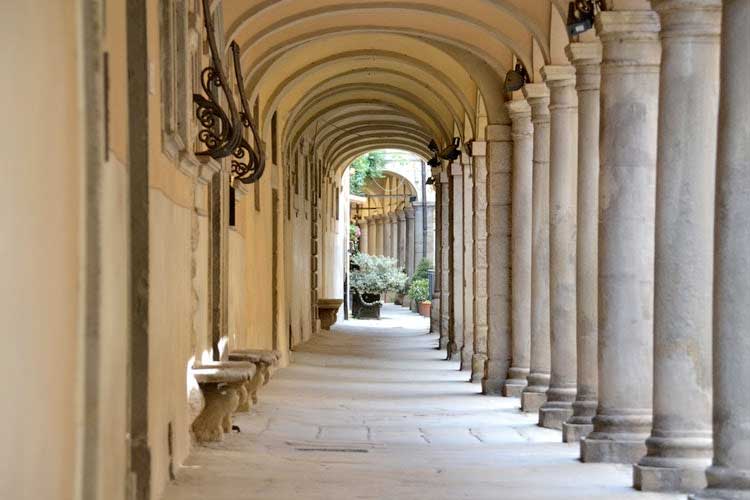
The medieval village
The medieval village of Poppi is situated on the top of a small hill, in the very centre of Casentino.
On the highest spot of this hill, lies the castle of the Guidi's family. From here, the feudal lord could embrace his property with his eyesight.
The history of Poppi is firmly tied to the happenings of the Guidi Counts’ family, who dominated the area from 1191 to 1440, the year when Poppi became the seat of the Vicar of the Florentine Republic.
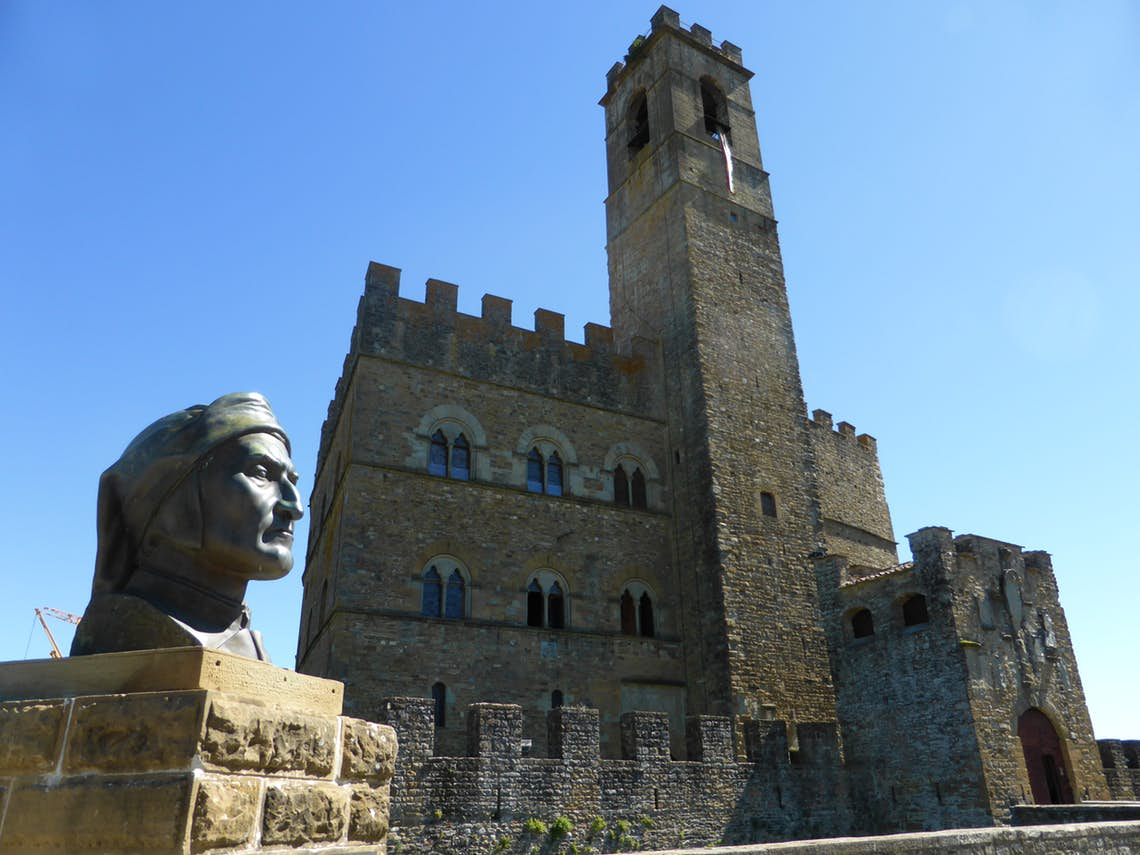
The Guidi Counts' castle
The castle of Poppi was the residence of the Counts Guidi and owes its current aspect to Simone da Battifolle, who started the first construction works.
The castle of Poppi has a fourteenth-century structure with later Renaissance interventions.
On the outside, the castle resembles Florence’s Palazzo Vecchio, of which can be considered the prototype, since the two buildings were probably designed by the same architect, Arnolfo di Cambio.
On the inside, the courtyard, the staircases, the wooden walkways, the large halls with their ceiling coffers are masterpieces of Tuscan architecture, especially the magnificent staircase by architect Baldassarre Turriani, which dates back to 15th century. The Guidi Counts’ chapel is decorated with frescoes by Taddeo Gaddi, who was Giotto’s pupil.
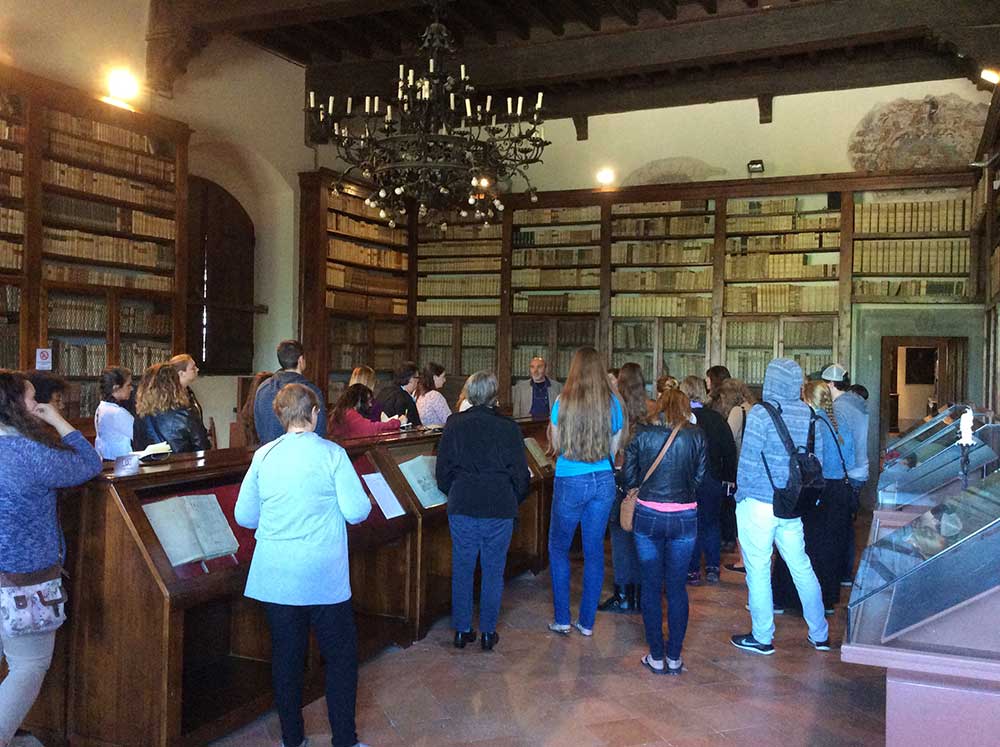
The "Rilli-Vettori" Library
Count Guido di Simone da Battifolle hosted in this castle the famous poet Dante Alighieri, first in 1307 and then in 1311. According to tradition, it was really in Poppi that the Sommo Poeta composed the 33rd canto of the Inferno.
Since 1911, the Castle has been hosting a real treasure, that is the historical section of the "Rilli-Vettori" Library, a rich collection of more than 25.000 volumes, including 1.400 among manuscripts and incunabula.
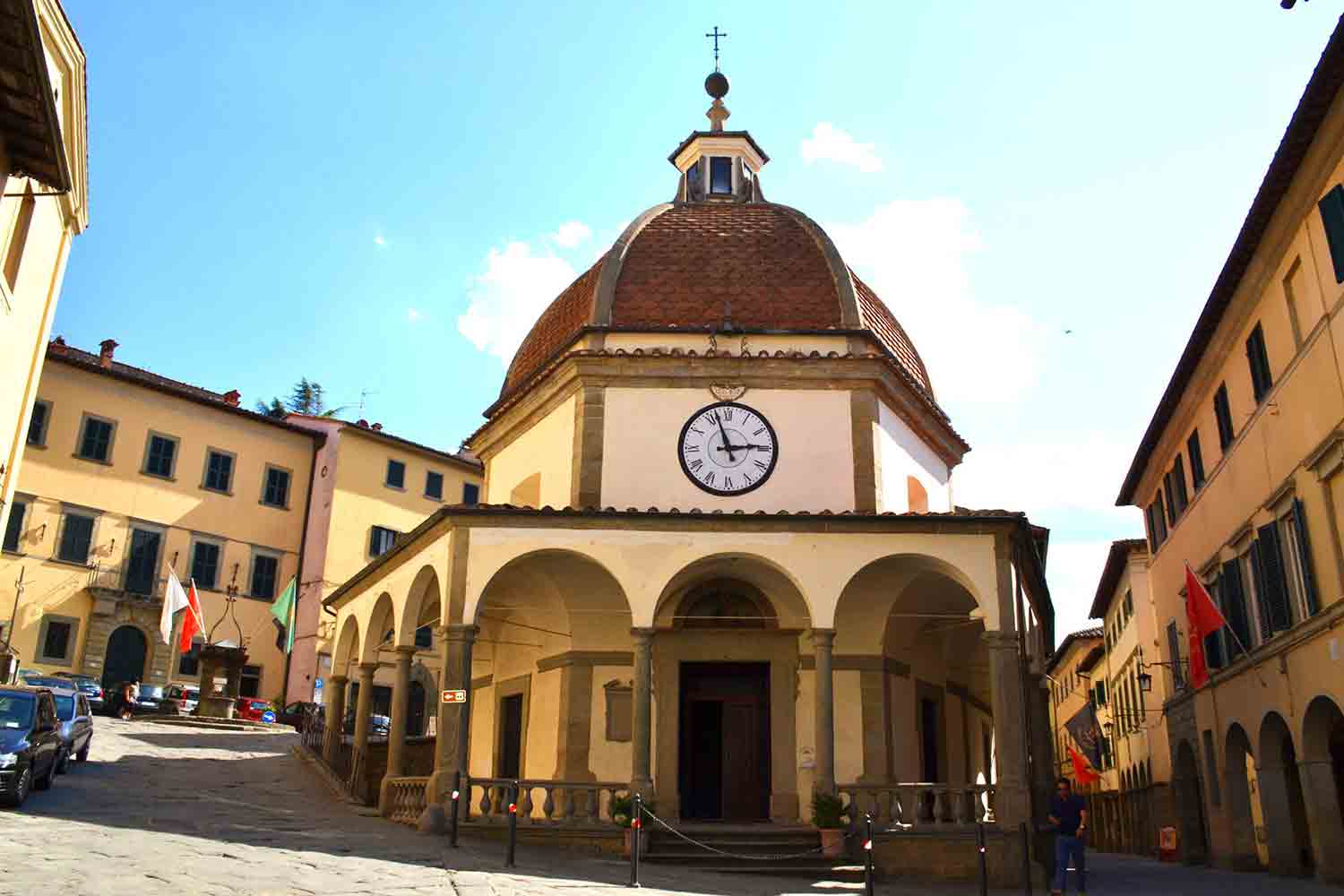
A town from another time
The village features other remarkable buildings, such as the Oratory of the Madonna del Morbo (17th century), the Abbey of San Fedele (11th century), the Church of St. Marco and Lorenzo (18th century) and the historic building of Palazzo Vettori, which is the current location of the modern section of the "Rilli – Vettori" Library and our school.
What strikes visitors the most, however, are the stone paved streets, the squares, the loggias, the architecture of Poppi, the magical atmosphere and the impressions of a town from another time, the concrete perception of a quiet, cozy and comfortable place, safe and far from big cities' hustle and bustle.
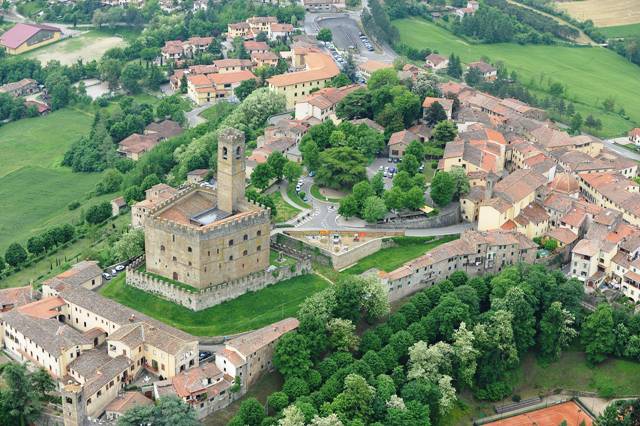
One of "I BORGHI PIÙ BELLI D'ITALIA"
Isolated in the Tuscan countryside, yet close to big art cities, such as Florence, Arezzo and Perugia, Poppi is unique and unforgettable, especially during those starry nights spent at the small kiosk bar just in front of the castle.
Poppi has been awarded as one of "I BORGHI PIÙ BELLI D'ITALIA" (Italy's Most Beautiful Villages) by ANCI (National Association of Italian Communes).


